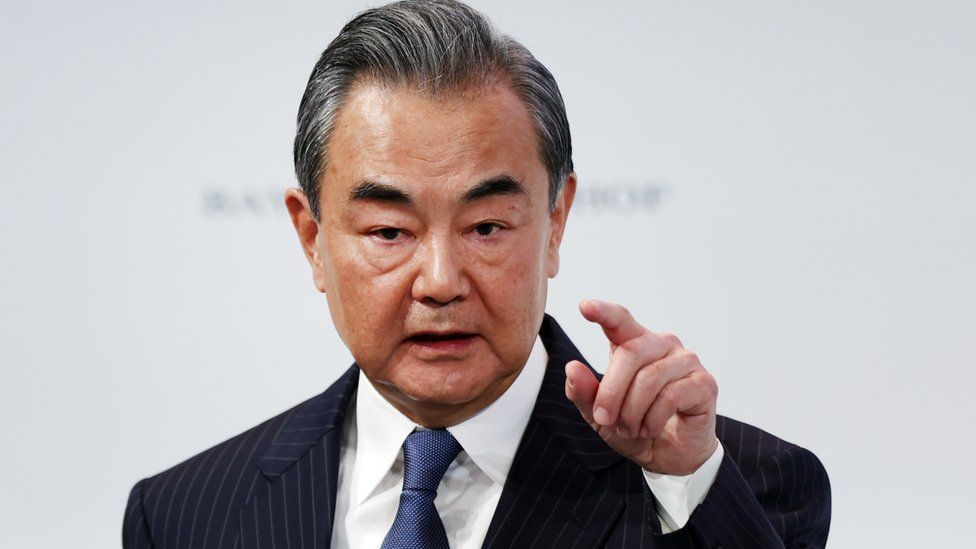Wang Yi, re-appointed as China’s foreign minister to replace Qin Gang, will be a familiar face to many on the international stage.
The 69-year old is already China’s top diplomat as head of the Communist Party’s Central Foreign Affairs Commission.
Unlike in many countries, China’s foreign minister is not the most authoritative voice in its diplomatic affairs.
Other individuals in the Chinese Communist Party’s leadership, including the director of the Central Foreign Affairs Commission – a post that Mr Wang continues to hold – have more say over foreign policy formulation.
He now returns to a post he held for most of the past decade.
One of the leading “wolf warrior” diplomats – who often engage in combative rhetoric against those who cross Beijing – Mr Wang is well-known to the US.
In a meeting with US Secretary of State Antony Blinken in June, he said Washington’s “misperceptions toward China” has led to misguided China policies.
“China-US relations have gone through ups and downs, and it is necessary for the United States to reflect upon itself, and work with China to jointly manage differences and avoid strategic surprises,” he said.
Mr Wang majored in Japanese as an undergraduate at Beijing International Studies University and first joined the Ministry of Foreign Affairs at the age of 29.
From 2004 to 2007, he served as China’s ambassador in Tokyo.
He then moved on to lead China’s policy-making Taiwan Affairs Office from 2008, until he was appointed foreign minister for the first time in 2013.
In 2020, he reacted strongly to Czech senate president Miloš Vystrčil’s visit to Taiwan, warning that the Chinese government would make the Czechs “pay a heavy price for their short-sighted behaviour and political opportunism”.
This prompted Prague to hit back, describing Chinese leaders as “unmannered rude clowns”.
However some observers see Mr Wang’s re-appointment as a move to stabilise Chinese diplomacy in a turbulent time – the country’s economy is faltering as it emerges from Covid-induced isolation and it’s engaged with the US in trying to thaw frosty relations.
“With a series of major international meetings coming up, Xi defaulted to someone who has relationships with many of his foreign counterparts. In times of uncertainty, China wants continuity and predictability in this position,” said Rorry Daniels, a senior fellow at the Center for China Analysis.
Ian Johnson, a senior fellow for China studies at the Council on Foreign Relations, added: “Wang Yi has held the [foreign minister] position before. He’s clearly a fireman or caretaker who has been sent in to right the ship to keep Chinese foreign policy going smoothly.”
“And I think he’ll do that because he’s a very, very capable official,” he said.
Related Topics
- Asia
